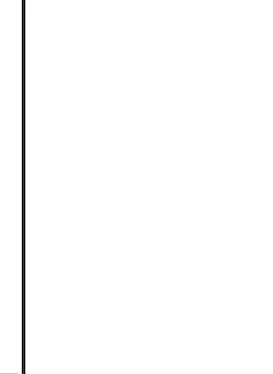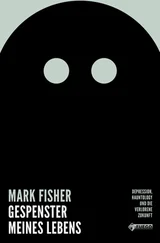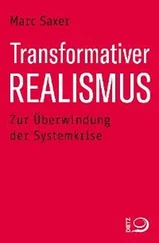Mark Fisher - Capitalist Realism - Is There No Alternative?
Здесь есть возможность читать онлайн «Mark Fisher - Capitalist Realism - Is There No Alternative?» весь текст электронной книги совершенно бесплатно (целиком полную версию без сокращений). В некоторых случаях можно слушать аудио, скачать через торрент в формате fb2 и присутствует краткое содержание. Жанр: Старинная литература, на английском языке. Описание произведения, (предисловие) а так же отзывы посетителей доступны на портале библиотеки ЛибКат.
- Название:Capitalist Realism: Is There No Alternative?
- Автор:
- Жанр:
- Год:неизвестен
- ISBN:нет данных
- Рейтинг книги:4 / 5. Голосов: 1
-
Избранное:Добавить в избранное
- Отзывы:
-
Ваша оценка:
- 80
- 1
- 2
- 3
- 4
- 5
Capitalist Realism: Is There No Alternative?: краткое содержание, описание и аннотация
Предлагаем к чтению аннотацию, описание, краткое содержание или предисловие (зависит от того, что написал сам автор книги «Capitalist Realism: Is There No Alternative?»). Если вы не нашли необходимую информацию о книге — напишите в комментариях, мы постараемся отыскать её.
Capitalist Realism: Is There No Alternative? — читать онлайн бесплатно полную книгу (весь текст) целиком
Ниже представлен текст книги, разбитый по страницам. Система сохранения места последней прочитанной страницы, позволяет с удобством читать онлайн бесплатно книгу «Capitalist Realism: Is There No Alternative?», без необходимости каждый раз заново искать на чём Вы остановились. Поставьте закладку, и сможете в любой момент перейти на страницу, на которой закончили чтение.
Интервал:
Закладка:
Much of Baudrillard's work was a commentary on this same effect: the way in which the abolition of the Symbolic led not to a direct encounter with the Real, but to a kind of hemorrhaging of the Real. For Baudrillard, phenomena such as fly on the wall documentaries and political opinion polls -both of which claimed to present reality in an unmediated way -would always pose an insoluble dilemma. Did the presence of the cameras affect the behavior of those being filmed? Would the publication of poll results affect the future behavior of voters? Such questions were undecidable, and therefore 'reality' would always be elusive: at the very moment when it seemed that it was being grasped in the raw, reality transformed into what Baudrillard, in a much misunderstood neologism, called 'hyperreality'. Uncannily echoing Baudrillard's fixations, the most successful reality television programs ended up fusing fly on the wall documentary elements with interactive polling. In effect, there are two levels of 'reality' in these shows: the unscripted behavior of the 'real life' participants onscreen, and the unpredictable responses of the audience at home, which in turn affect the behavior of the onscreen participants. Yet reality TV is continually haunted by questions about fiction and illusion: are the participants acting, suppressing certain aspects of their personality in order to appear more appealing to us, the audience? And have the audience's votes been accurately registered, or is there some kind of a fix? The slogan that the Big Brother TV show uses -'You decide' -captures perfectly the mode of control by feedback that, according to Baudrillard, has replaced old centralized forms of power. We ourselves occupy the empty seat of power, phoning and clicking in our responses. TV's Big Brother had superseded Orwell's Big Brother. We the audience are not subjected to a power that comes from outside; rather, we are integrated into a control circuit that has our desires and preferences as its only mandate -but those desires and preferences are returned to us, no longer as ours, but as the desires of the big Other. Clearly, these circuits are not confined to television: cybernetic feedback systems (focus groups, demographic surveys) are now integral to the delivery of all 'services', including education and government.
This returns us to the issue of post-Fordist bureaucracy. There is of course a close relationship between bureaucracy -the discourse of officialdom -and the big Other. Witness two of Zizek's own examples of the big Other at work: a low-level official who, having not been informed of a promotion, says 'Sorry, I have not yet been properly informed about this new measure, so I can't help you...'; a woman who believed that she was suffering bad luck because of the number of her house, who could not be satisfied by simply repainting a different number herself, because 'it has to be done properly, by the responsible state institution ...' We are all familiar with bureaucratic libido, with the enjoyment that certain officials derive from this position of disavowed responsibility ('it's not me, I'm afraid, it's the regulations'). The frustration of dealing with bureaucrats often arises because they themselves can make no decisions; rather, they are permitted only to refer to decisions that have alwaysalready been made (by the big Other). Kafka was the greatest writer on bureaucracy because he saw that this structure of disavowal was inherent to bureaucracy. The quest to reach the ultimate authority who will finally resolve K's official status can never end, because the big Other cannot be encountered in itself: there are only officials, more or less hostile, engaged in acts of interpretation about what the big Other's intentions. And these acts of interpretation, these deferrals of responsibility, are all that the hig Other is.
H Kafka is valuable as a commentator on totalitarianism, it is by revealing that there was a dimension of totalitarianism which cannot be understood on the model of despotic command. Kafka's purgatorial vision of a bureaucratic labyrinth without end chimes with Zizek's claim that the Soviet system was an 'empire of signs', in which even the Nomenklatura themselves including Stalin and Molotov -were engaged in interpreting a complex series of social semiotic signals. No-one knew what was required; instead, individuals could only guess what particular gestures or directives meant. What happens in late capitalism, when there is no possibility of appealing, even in principle, to a final authority which can offer the definitive official version, is a massive intensification of that ambiguity. As an example of this syndrome, let us turn once more to Further Education. At a meeting between Trade Union officials, college Principals and Members of Parliament, the Learning and Skills Council (LSq, the quango at the heart of the FE funding labyrinth, carne in for particular attack. Neither the teachers, nor the Principals, nor the MPs could determine how particular directives had generated themselves, since they are not there in government policy itself. The answer was that the LSC 'interpreted' the instructions issued by the Department for Education and Skills. These interpretations then achieve the strange autonomy peculiar to bureaucracy. On the one hand, bureaucratic procedures float freely, independent of any external authority; but that very autonomy means that they assume a heavy implacability, a resistance to any amendment or questioning.
The proliferation of auditing culture in post Fordism indicates that the demise of the big Other has been exaggerated. Auditing can perhaps best be conceived of as fusion of PR and bureaucracy, because the bureaucratic data is usually intended to fulfill a promotional role: in the case of education, for example, exam results or research ratings augment (or diminish) the prestige of particular institutions. The frustration for the teacher is that it seems as if their work is increasingly aimed at impressing the big Other which is collating and consuming this 'data'. 'Data' has been put in inverted commas here, because much of the so-called information has little meaning or application outside the parameters of the audit: as Eeva Berglund puts it, 'the information that audit creates does have consequences even though it is so shorn of local detail, so abstract, as to be misleading or meaningless -except, that is, by the aesthetic criteria of audit itself' .
New bureaucracy takes the form not of a specific, delimited function performed by particular workers but invades all areas of work, with the result that -as Kafka prophesied -workers become their own auditors, forced to assess their own performance. Take, for example, the 'new system' that OFSTED (Office for Standards in Education) uses to inspect Further Education colleges. Under the old system, a college would have a 'heavy' inspection once every four years or so, i.e. one involving many lesson observations and a large number of inspectors present in the college. Under the new, 'improved' system, if a college can demonstrate that its internal assessment systems are effective, it will only have to undergo a 'light' inspection. But the downside of this 'light' inspection is obvious -surveillance and monitoring are outsourced from OFSTED to the college and ultimately to lecturers themselves, and become a permanent feature of the college structure (and of the psychology of individual lecturers). The difference between the old/heavy and new/light inspection system corresponds precisely to Kafka's distinction between ostensible acquittal and indefinite postponement, outlined above. With ostensible acquittal, you petition the lower court judges until they grant you a non-binding reprieve. You are then free from the court, until the time when your case is re-opened. Indefinite postponement, meanwhile, keeps your case at the lowest level of the court, but at the cost of an anxiety that has never ends. (The changes in OFSTED inspections are mirrored by in the change from the Research Assessment Exercise to the Research Excellence Framework in higher education: periodic assessment will be superseded by a permanent and ubiquitous measurement which cannot help but generate the same perpetual anxiety.)
Читать дальшеИнтервал:
Закладка:
Похожие книги на «Capitalist Realism: Is There No Alternative?»
Представляем Вашему вниманию похожие книги на «Capitalist Realism: Is There No Alternative?» списком для выбора. Мы отобрали схожую по названию и смыслу литературу в надежде предоставить читателям больше вариантов отыскать новые, интересные, ещё непрочитанные произведения.
Обсуждение, отзывы о книге «Capitalist Realism: Is There No Alternative?» и просто собственные мнения читателей. Оставьте ваши комментарии, напишите, что Вы думаете о произведении, его смысле или главных героях. Укажите что конкретно понравилось, а что нет, и почему Вы так считаете.












